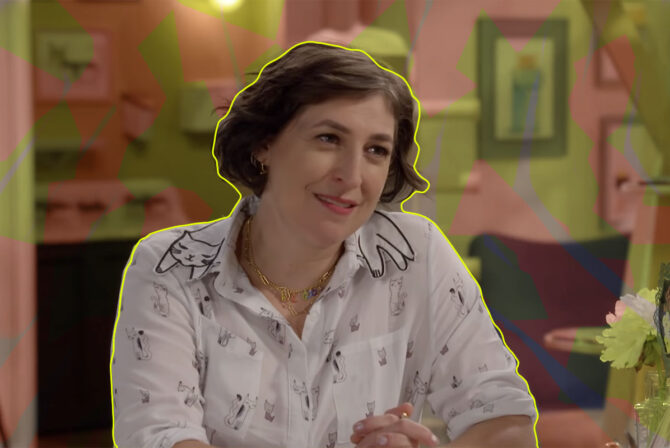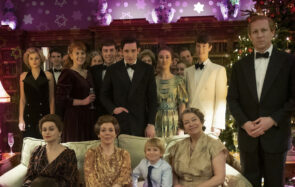When I started翻译yiddish.七年前儿童文学,我觉得既是语言老师and a mother。What could my second-semester college students realistically read in the original? Were there any authentic Jewish children’s stories that could take my children into the culture of their Ashkenazic ancestors?
Pressing questions of identity also loomed: Could I productively fuse my work as a scholar with my task as a mother? Could my career-long investment在宜天culture offer something immediately meaningful to the Jewish community beyond the walls of academia?
我对全面融合的所有问题的答案anthology of Yiddish children’s literature,它有几个我选择和翻译的50件。在我在这个项目上工作的几年里,我从有两个男孩,9岁和5岁,育儿高中学生,一个中学生,and学龄前儿童。我想到了我的孩子作为一个焦点小组,注意到他们迷上了他们或无聊。我设想了我的书最终使用的所有背景:犹太图书馆的故事时间,希伯来学校课程,夏令营和日学校。
But just as my book was getting ready to meet its public, the coronavirus hit. As a result, nearly every aspect of our lives have been altered, from our careers to ourkids’ schooling我们犹太公社生活。然而,一个奇怪的银色衬里整个经验,我在这些经典的yiddish儿童的故事中找到了新的相关性。现在,我们七个左右进入大流行 - 没有在视线中结束 - 这是一些yiddishkidlit lessons一世’ve learned that are helping me through the chaos of pandemic parenting.
1.真的可以总是更糟。
一世am at least seven minutes into teaching a seminaron Zoom当学生终于通过我来到我时,我的耳机不起作用 - 显然,当我Breeezily占用的音频没有参加,分享我的屏幕并推出了一项活动。所以我把耳机从耳机 - 而邻居的叶子鼓风机立即打开。
Equanimity returns and we find our groove… until my 4-year-old starts screaming for me. In the best of times, working moms spend a lot of energy concealing the claims that our children make on us, even when we are perfectly up-front about their existence. So it’s reflexively embarrassing. No tushies of minors是广播的跨国线;我可能不是任何实际的原因法律。一世t’s just… well… it could always be worse, right?
幸运的是,在不欣赏许多舒适和保护的情况下,您无法深入挖掘犹太历史,我们必须减轻风险并尽量减少随附的痛苦a dangerous pandemic。Zina Rabinowitz的“静音公主”在卡萨布兰卡设定(有点异常为一个Yiddish故事),其中一个沉默的非凡的美丽女孩被当地阿拉伯人带到了犹太孤儿院。当她的父母在未指明的流行病中死亡时,她无法发言就变成了患有前肢的症状。然而,这是一个充满希望的弹性故事,因为女孩发现关怀和社区,恢复了她的言论。这里的课程?当这些日子的收费时,我们陷入沉默时,我们可以帮助彼此重新获得声音。
2.让孩子参与政治激情。
A friend recently sent me a button that reads “Shtimt!“ - ”投票!“在yiddish。穿着它打开了一个伟大的关于投票的谈话,民主,以及总统是否在我4岁的词典,“一个好人或一个坏人”。我描述了一些现任的签名政策和最近的评论,他提出了他自己的结论。
Yiddish children’s literature arose as an artifact of Jewish cultural nationalism. It wasn’t shy about politics — and we shouldn’t be either. Khaver Paver’s 1935 stories about “Labzik: A Clever Pup” (aka “Leftist Lassie”) were distributed through the Yiddish school system of the communist-aligned International Workers’ Order. In “Labzik and the Strike,” the whole family accompanies Berl the (Sewing Machine) Operator纠察恶劣的工作条件是血汗工厂推出的。作为父母,我们都应该准备向我们的孩子解释,以适当的语言强调我们政治倾向的理想。
3. Empathy is everything.
With an eight-year age gap, there is blessedly little conflict between my middle schooler and preschooler. But after months without in-person socializing and only a thin door separating虚拟中学从自由形式的Homeschool Pre-K,即使是默默斯特的摩尔克斯人也可以通过午餐时间变得粗糙。“你觉得你兄弟的感受是什么?”我们问他们每个人。
在29日话说,Polish-Canadian诗人艾达玛斯e evokes the question of empathy in the relationship between an older and a younger child:
如果你是我,
我是你,
我会在
你的鞋子。
一世would be eight,
And four’s what你是;
So then would you
和我一起玩?
孩子们学习all时间,所以尽量不要强调学校。
一世f our kids are awake, they are learning from us — and not just academic subjects. For example, having my sons at home is an opportunity for them to see me doing work that brings me joy and fulfillment. What’s more, they witness my partner creating space for me to teach and write and speak with friends. Because we are all responsible for detoxifying masculinity, it’s especially important to me that they learn by example to be关怀的丈夫和平等的父母。
孩子们还需要一些空间来学习;当我们全部在家中携带时,这一切都太容易俯冲并解决了每个问题。在萨拉莱伯特的故事中,两个男孩担任助手的两个男孩fruitand vegetable peddlers. On a blistering July day, they risk scorn and dismissal by skeptical adults as they figure out for themselves how to secure water for the horses left in their care while the bosses cool off. It’s a reminder that if you’re busy with work, or you’re taking几分钟为自己,你的孩子会很好。
孩子们会有疑问我们无法回答,那没关系。
一世n Judah Steinberg’s “Questions,” a little boy gradually comes to understand and interrogate his own特权。Through posing a series of uncomfortable questions, he realizes that he benefits from all kinds of unseen labor, both from other people (the washerwoman, the carpenter) and animals (the cow, the mule, and so on). He finally poses the questions to his mother because, as he says, “a mother is the smartest thing in the world.” But evenshe cannot answer什么相当于一个悸动,存在的“howyyy?”
“When I grow up,” the boy resolves, “I myself will find the answers to these questions!” That’s not a bad parenting outcome.
6. Tantrums are like weather systems; they pass.
Show me a home in which no door has been slammed or no curse word has escaped these past seven months, and I will show you where liars live. Moyshe Kulbak’s “The Wind that Got Angry” is a lyrical tale of a wearywinter wind这找不到休息的地方来春天。从每个潜在的舒适地区施出来,他撤退到一个领域,鞭打了一个疯狂的,华丽的暴风雨。恳求由两个幼儿的单身母亲渴望,这是愤怒的,绝望的风在他的愤怒中翻了一番,在她的脸上推雪。当她呼吁再次上诉时,风最终会被绥靖;Tantrum花了自己。换句话说,一切 - 既好和坏 - 结束了。
7.你比你想象的养育事物更好。
现在的事情令人难以置信,但请记住:每天我们的孩子都没有被熊吃掉,事实上,我们是#winning。
The Soviet Yiddish writer Leyb Kvitko built an entire career on portraying absent or incompetent parents; nobody could care as well for children, by his reckoning, as the Soviet State and its avatar, “Papa” Stalin. But even disastrous parenting mishaps can turn out cheerfully. As the title promises, “The Girl in the Mailbox” is the tale of a dad who takes his little girl along to mail a letter, and then absentmindedly chucks her into the mailbox instead.灾难? Perhaps — but she has a fantastic time going along with the mail from Argentina to Poland and home again, where her father eagerly reclaims her. And hey, at leastshe可以旅行。
Header image via NYU Press








